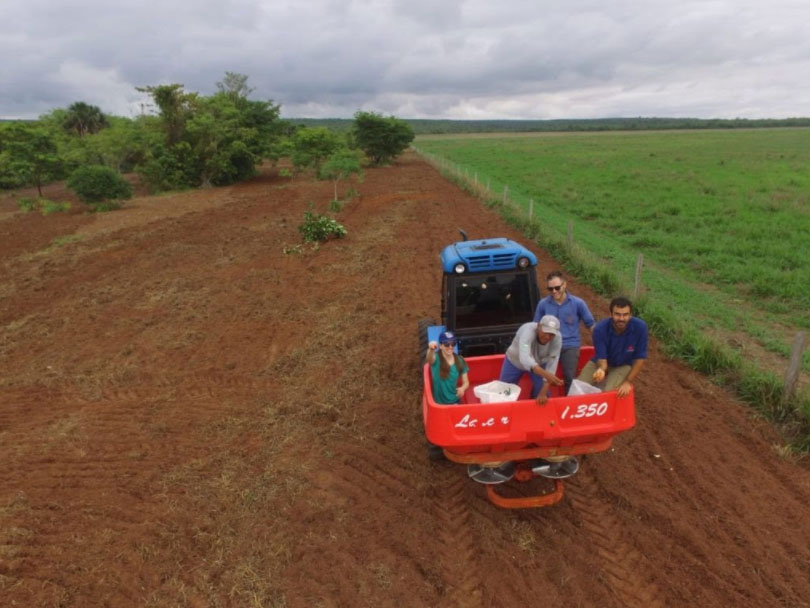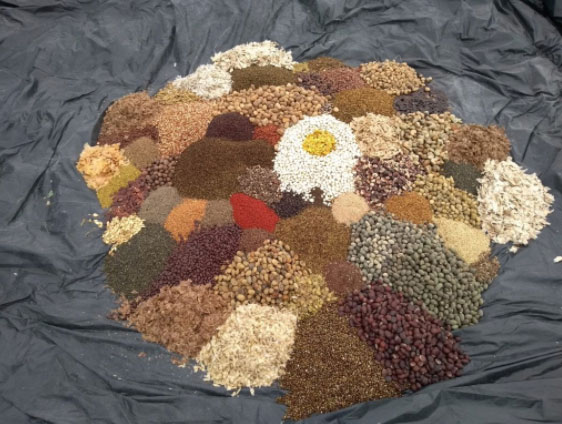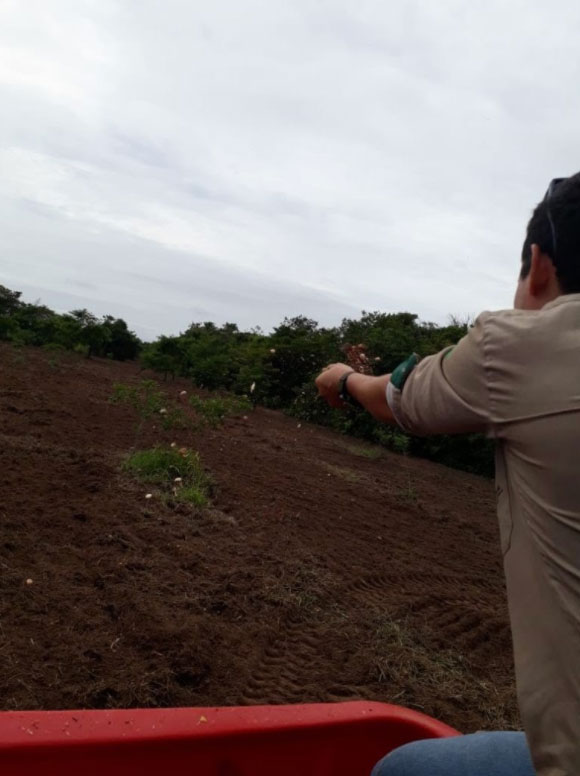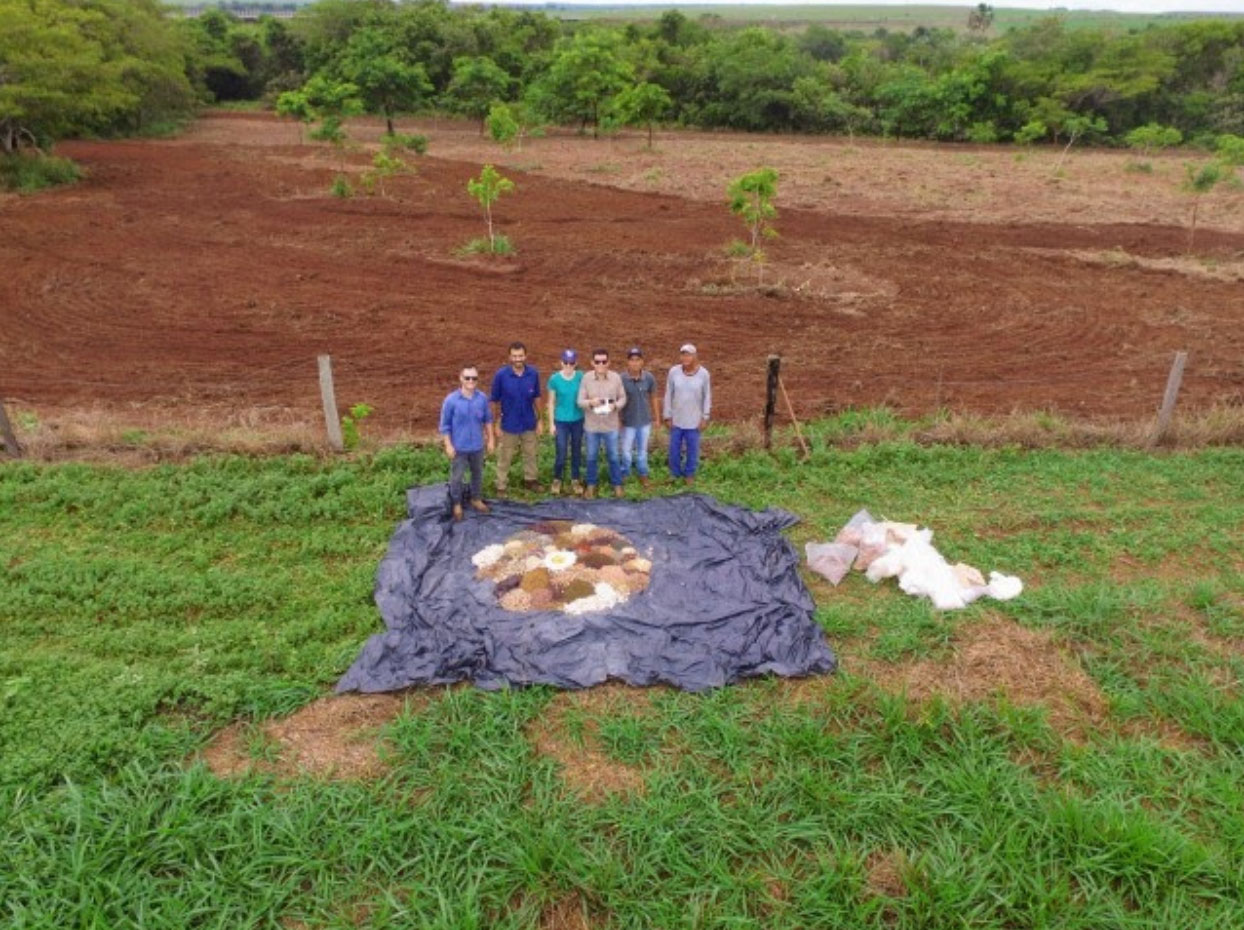Organization will participate in DINETEC 2020 to show the “muvuca” technique to rural producers
By Tatiane Ribeiro
In addition to supplying native seeds for planting, the Xingu Seeds Network Association (ARSX) starts implementing forest restoration areas. The work, previously carried out by partners, such as the Instituto Socioambiental (ISA), will become part of the strategy of expanding the network within the forest restoration chain.
The first planting was carried out on a rural property in the municipality of Rondonópolis (Mato Grosso). On the 1500 hectare farm, where the main activity is livestock, the ARSX technician, João Carlos Mendes Pereira, together with forest engineer Lucas Alencar da Silva Nogueira, from Geo Florestal MT, and technician Guilherme Pompiano, from ISA, planted the muvuca, a technique that uses a mix of seeds to reforest degraded areas. A total of 88 kilos of 67 different species were used in one hectare of the property.

Planting 1500 hectares in the municipality of Rondonópolis (MT) was one of the first of ARSX. Photo: Disclosure
“The technicians of the network and that of ISA demonstrated total knowledge of the subject, which increases our expectations of success in the area, in addition to deepening our knowledge about muvuca”, explained Lucas. “In just over a week, it was already possible to observe the development of bean seeds (green fertilizers) sown together with native ones. What we hope for is that after this process we will be able to find a high diversity of native species and that this restoration will be able to approach the structure, diversity, ecological and dynamic function of the ecosystem that originally existed on the site ”, says Lucas.

Muvuca used was 88 kilos, with native seeds of 67 different species. Photo: Disclosure
The engineer had contact with the network’s work from the expedition carried out in 2018, in Mato Grosso, where more than 100 technicians and researchers were able to get to know the work of the collectors and planting on the properties up close. “The idea is also to show other rural producers and professionals in related areas that they can, yes, trust the muvuca technique”, he indicates.
“For the chain, in addition to demonstrating the efficiency of this low-cost restoration technique to producers and being a new way of entering financial resources, it is the beginning of opening up a range of possibilities for working with muvuca also within the association , through the training of restorers, of areas implanted in the collection groups, among others ”, explains João Carlos Mendes Pereira, technician in forest restoration at ARSX.

The chain will participate in DINETEC 2020 to show the technique to rural producers in the region. Photo: Disclosure
For 2020, the objective is to bring rural producers closer to the network’s work, presenting muvuca as a possibility of a solution for the environmental adequacy of the properties through dialogue and experiments. The first step towards this is participation in DINETEC, Business and Technology Day, which will take place from January 15th to 17th, in Canarana, Mato Grosso. In addition, the association will implement 6.5 hectares of muvuca plantations, in areas located in rural settlements, indigenous land and a public municipal area.

